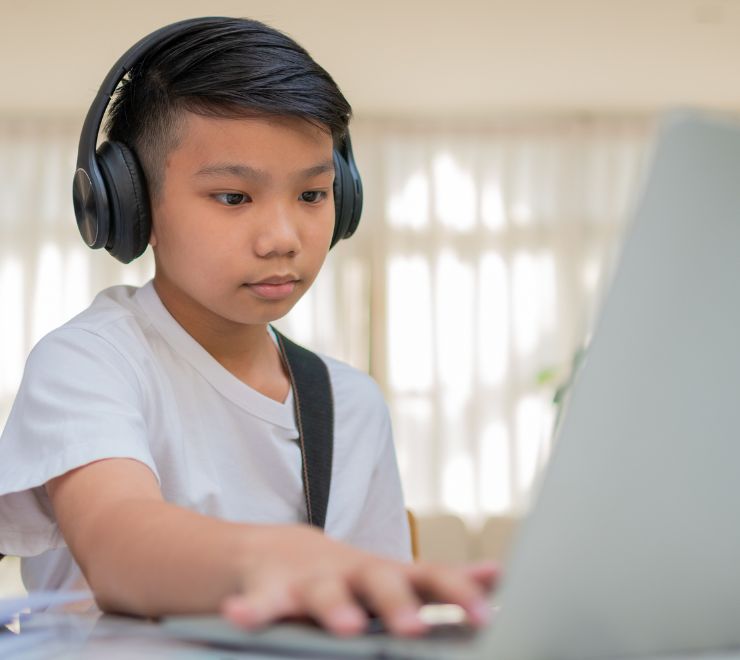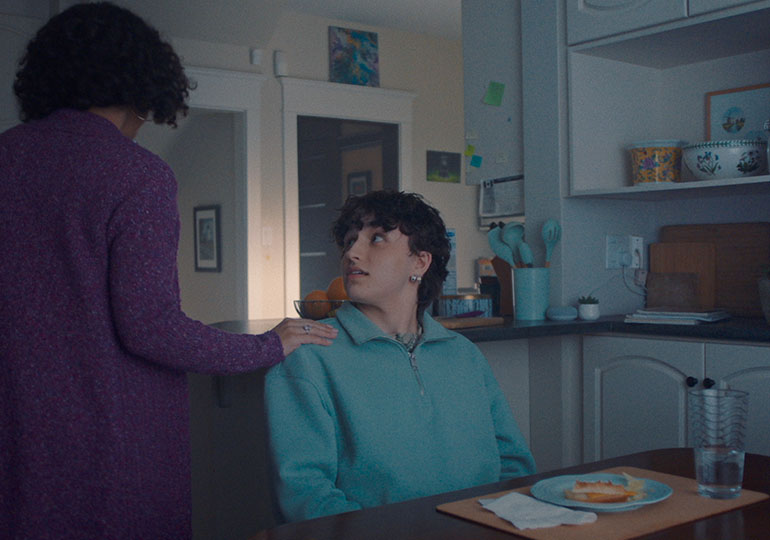Knowing potential signs of abuse can help caring adults across Canada better support the young people in their lives. Abuse happens in all kinds of families, homes and communities. Abuse is not OK, against the law and never a victim’s fault. Abuse can be physical, emotional and / or sexual. It can also include neglect. Here, Kids Help Phone shares ways adults can learn to recognize common warning signs of abuse in kids, teens and young adults.
What do I need to know about potential signs of abuse?
Learning potential signs of abuse may help you protect kids, reduce risks in your community and prevent possible negative outcomes for youth. We encourage you to remain curious and non-judgmental when it comes to supporting young people. If you’re concerned, you can always check in with the young person about what might be happening in their life. It can be helpful to validate the young person’s experience, reinforce that abuse is not their fault and refrain from coming to conclusions / immediately criticizing the people who may be involved.
The way we experience growing up and how we’re raised can vary from person to person. Behaviours considered standard in one culture or family may differ in another. When making observations about what appears to be abuse, try to put your own biases aside. Do your best to remain objective.
Try to keep in mind that one sign of abuse doesn’t necessarily mean that abuse is happening. However, if you observe signs of abuse, and are concerned that a young person is being harmed, is at risk of being harmed or if a young person discloses abuse to you, you have a duty to report. For more information on signs of abuse and your duty to report, you can contact community / emergency services and / or child protection services nearest you.
Throughout this tip sheet, Kids Help Phone is referring to abuse from an adult to a young person. We recognize that youth may experience abuse from others through situations like bullying, online hate and more. You can check out our e-mental health resources for more information and ways to offer support.
In each of the sections below, we explore potential warning signs of abuse by sharing lists with various examples. The possibility of abuse in a given situation could include one or more of the examples in the below lists, or could include something else. It’s always best to connect with the young person, community / emergency services and / or child protection services if you’re concerned about what might be going on.
How can I recognize potential signs of emotional abuse?
Emotional abuse occurs when an adult says or does something to damage / possibly damage a young person’s emotional development / sense of self-worth. It includes rejecting, humiliating, scaring, isolating, manipulating and more.
You might consider the possibility of emotional abuse when you notice a young person:
- doesn’t appear to feel safe / comfortable with an adult (e.g. is hesitant to go with an adult, expresses feeling uncomfortable around an adult, etc.)
- has emotional responses that are inconsistent with their age / stage of development
- is displaying sudden adult behaviour (e.g. parenting other kids, etc.) or regression (e.g. reverting to younger ways of talking / eating, etc.)
- experiences frequent headaches, nausea, abdominal pains and / or involuntary urination
- shows extremes in behaviour (e.g. passivity, aggression, attention-seeking, inhibition, compliance / defiance, etc.)
You might consider the possibility of emotional abuse when you notice an adult:
- is unconcerned about a young person / refuses offers of support for them
- constantly blames, diminishes, berates and / or rejects a young person
How can I recognize potential signs of physical abuse?
Physical abuse is any deliberate physical force or action by an adult that results or could result in injury to a young person. Using an object to punish a young person is also physical abuse.
You might consider the possibility of physical abuse when you notice a young person:
- has unexplained injuries (e.g. burns, bruises, broken bones, etc.) or injuries inconsistent with their age (e.g. facial injuries in babies, etc.)
- has fading bruises / other noticeable marks after an absence from school
- can’t recall / offers inconsistent explanations as to how injuries occurred
- flinches at sudden touches / movements
- seems afraid of an adult and / or protests / cries when it’s time to go
You might consider the possibility of physical abuse when you notice an adult:
- offers a conflicting, unconvincing and / or no explanation for a young person’s injury(s)
- describes a young person in a negative, demeaning and / or harmful / potentially harmful way
- uses physical discipline that physically harms / has the potential to physically harm a young person (e.g. shaking, pushing, grabbing, throwing, punching, kicking, biting, hitting with an object, etc.)
How can I recognize potential signs of sexual abuse?
Sexual abuse occurs when a young person is used for the sexual gratification of an adult. It’s any act(s) that subjects a young person to an adult’s desires through an abuse of power, the use of force / coercion and / or implicit / explicit threats.
You might consider the possibility of sexual abuse when you notice a young person:
- demonstrates sexual knowledge / behaviour typically inconsistent with their age
- displays explicit sexual acts / seductive behaviour, particularly if they’re under the age of 14
- is involved in prostitution / sex trafficking
- refers to sexual themes during playtime
- is sensitive to physical touch
- suddenly refuses to change for gym / participate in physical activities
- has unusual / excessive itching in the genital / anal area
- has difficulty walking / sitting due to pain around the genital / anal area
- becomes pregnant / contracts a sexually transmitted infection (STI), particularly if they’re under the age of 14
You might consider the possibility of sexual abuse when you notice an adult:
- is unduly protective of a young person / severely limits their contact with others
How can I recognize potential signs of neglect?
Neglect occurs when an adult doesn’t provide basic needs to a young person, such as adequate food, shelter, clothing, medical care, mental health support, education, supervision and / or safety.
While trying to remain non-judgmental and objective, and remembering that every situation is unique, you might consider the possibility of neglect when you notice a young person:
- is frequently absent from school without a reasonable explanation
- has poor hygiene / severe body odour
- consistently wears dirty clothes
- lacks sufficient clothing for the weather
- frequently arrives at school without a lunch and / or takes food / money from others
- lacks needed medical / dental care and / or glasses
- states that there’s no one at home to provide care
- participates in harmful / potentially harmful activities
- uses substances in a manner that interferes with their daily life
- isn’t physically growing over time, particularly if they’re under the age of two
You might consider the possibility of neglect when you notice an adult:
- seems apathetic / indifferent to a young person
- behaves irrationally toward a young person
- is using alcohol / other substances in a manner that impacts the safety of a young person
Where can I find additional supports to help me identify signs of abuse?
You can consult the following resources for more tips and information about signs of abuse:
- What is child abuse? (Ontario Association of Children’s Aid Societies (OACAS))
- Child Abuse: Information and Resources (Government of Canada)
- Child Abuse & Neglect (The Canadian Child Welfare Research Portal (CWRP))
- Where to Begin and What to Discuss? (Kids in the Know)
- Resources: Keeping Kids Safe (Canadian Centre for Child Protection)
Learning how to recognize potential signs of abuse and knowing your duty to report can help adults across Canada support young people. You can also remind youth that Kids Help Phone’s e-mental health services are available 24/7 if you think they may need help. If you’re searching for more information / support, you can also explore resources from Wellness Together Canada.








